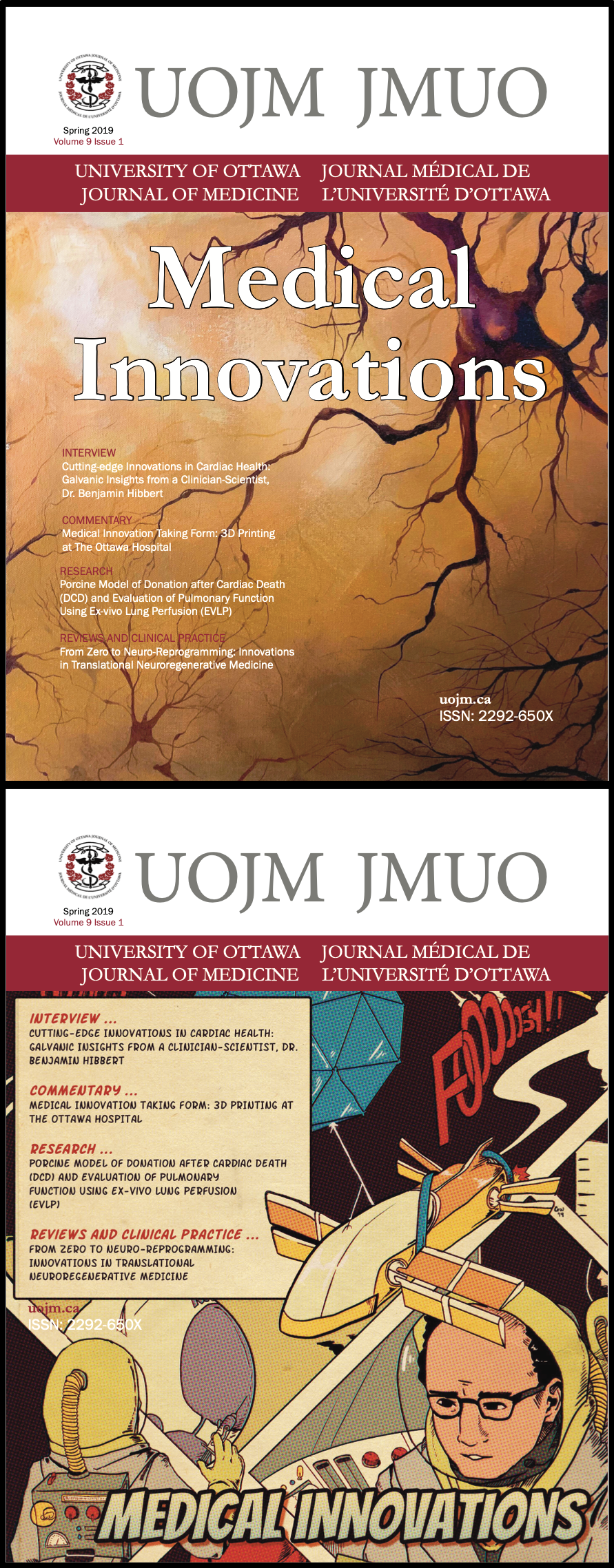Rituximab and Immune Molecule Modulation in Burkitt’s Lymphoma Cell Lines
DOI :
https://doi.org/10.18192/uojm.v9i1.4160Mots-clés :
Immunotherapy, immune molecules, rituximab, Burkitt's lymphomaRésumé
Objectives: Burkitt’s lymphoma is an aggressive B cell malignancy that is associated with EBV infection. The monoclonal antibody rituximab is used to treat many B cell malignancies, including Burkitt’s lymphoma. Studying immune molecule modulation in Burkitt’s lymphoma allows insight on developing new or refining existing immunotherapy agents for refractory or chemotherapy-resistant patients. The main purpose of this study was to explore rituximab’s impact on expression of immune molecules associated with immune activation or immune inhibition.
Methods: Burkitt’s lymphoma cell lines Raji, Ramos, Bjab, and an EBV-transformed B cell line, COX, were cultured and treated with an optimally-determined concentration of rituximab or human IgG for 24 hours. Immune modulation was determined by flow cytometric analysis of HLA-I, HLA-DR, PD-L1, and CD40. Three experiments were conducted for Raji, Ramos, Bjab, while 2 experiments were conducted for COX.
Results: Treatment of cells with rituximab, 10 µg/ml, completed downregulated CD20 expression and modulated expression of immune molecules. Compared to human IgG control, rituximab treatment decreased HLA-1, HLA-DR and CD40 expression on all cell lines, but significantly only for HLA-I on Bjab. Interestingly, the immune inhibitor PD-L1 was decreased on EBV-positive COX and Raji, but increased on EBV-negative Ramos and Bjab.
Conclusion: Downregulation of HLA-I could contribute to an immune escape mechanism. As this was a small study, there is limited transferability of the results to the clinical setting and further experiments are needed.
Téléchargements
Publié-e
Numéro
Rubrique
Licence
- Les auteurs qui publient dans le JMUO gardent les droits d’auteur de leurs articles, incluant tous les brouillons et la copie finale publiée dans le journal
- Bien que le JMUO n’a pas les droits d’auteur des articles soumis, en acceptant de publier dans le JMUO, les auteurs donnent le droit au journal d’être les premiers à publier et à distribuer leurs articles.
- Par la suite, les auteurs peuvent soumettre leurs documents à d’autres publications, incluant des revues ou des livres, avec un remerciement de leur première publication dans le JMUO
- Des copies du JMUO seront distribuées à la fois sous format papier et en ligne, et tous les matériaux seront accessibles au public en ligne. Le journal n’a pas de responsabilité légale par rapport à la distribution publique du contenu.
- Prière de vous assurer que tous les auteurs, les coauteurs et les investigateurs
- Le contenu est rendu disponible sous licence Creative Commons Attribution - Pas d'Utilisation Commerciale - Pas de Modification 4.0 International.


